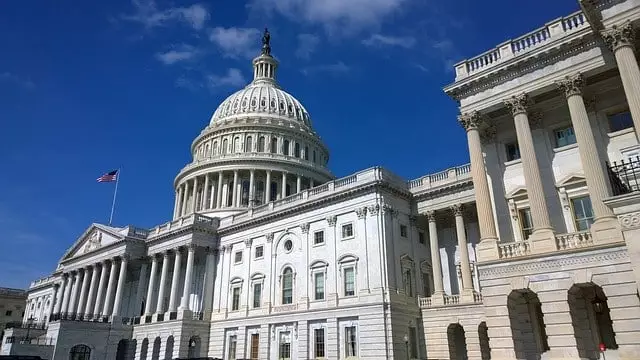In a bold and promising stand for decentralized finance (DeFi), the U.S. House of Representatives has overwhelmingly passed H.J. Res 25, signaling a triumph against the Internal Revenue Service’s (IRS) ill-conceived broker rule. This resolution, which garnered bipartisan support from 292 lawmakers, represents more than just a rejection of regulatory overreach; it embodies a broader commitment to the spirit of innovation and the foundational principles of personal freedom that are crucial in our rapidly evolving digital economy.
The IRS’s proposed regulations sought to regulate DeFi platforms akin to traditional brokers, imposing stringent reporting requirements that would have fundamentally misaligned with the nature of decentralized systems. Critics correctly argue that such a move would have hampered the progress of the crypto sector, distracting developers from innovation while imposing unnecessary bureaucratic hurdles on platforms that serve as the backbone of the burgeoning DeFi ecosystem. By calling out this overreach, the House affirmed a commitment to preserving the unique aspects of decentralized technology, which ultimately aim to empower users rather than confine them.
Broad Bipartisan Consensus
The passage of H.J. Res 25 reflects a rare and vital bipartisan unity in a political landscape often mired in divisiveness. Of the 292 who voted in favor, only a handful were absent, while 76 Democrats joined their Republican colleagues in affirming the belief that Americans should have the autonomy to choose their financial paths. This unanimous display from the right—save some non-attendees—and robust support from the left should be seen as a powerful mandate to prioritize innovation over excessive regulation, particularly in an industry that holds the potential for economic growth and technological advancement.
Advocacy groups, notably the DeFi Education Fund, hailed the pushback against the IRS. They highlighted the importance of maintaining an environment where innovative ideas can thrive. The crux of their argument centers on respect for individual autonomy in financial transactions—a principle that resonates across party lines and has been lost amid bureaucratic red tape in various facets of American governance.
A Reaction to Regulatory Overreach
Responses to the broker rule have been tinged with discontent and criticism. Prominent voices in the crypto community, such as venture capital firm Andreessen Horowitz, have decried the IRS’s attempts to obscure the boundaries between traditional finance and the emergent DeFi landscape. Their legal pushback signifies a collective frustration against regulatory bodies attempting to impose antiquated frameworks on technologies that leverage new modalities of transaction and value exchange.
Key political figures like French Hill, chair of the House Financial Services Committee, have characterized the broker rule as an exhibit of blatant government overreach. Hill argued staunchly for a regulatory environment that is conducive to growth rather than stifling it, pointing out the likely fallout; devoting stringent regulations could push American digital asset innovation overseas, undermining the nation’s competitiveness on a global scale.
The Outlook on Crypto and the Market Response
Despite the invigorating news from the House, it’s essential to contextualize this victory within the greater fluctuations of the crypto market. The immediate aftermath showed the broader market down by roughly 0.7%, with notable volatility displaying a collective vulnerability. We witnessed Bitcoin experiencing a decline to a four-month low, alongside Ethereum dipping below crucial support levels. However, the slight upward trends in high-cap assets like Bitcoin, XRP, and Dogecoin offer a glimmer of hope amidst overall uncertainty.
Investment sentiment is complex; while regulatory clarity is a positive sign, market dynamics are rarely linear. Movements within crypto assets often react to macroeconomic indicators and technological developments, shaping a landscape that requires nimble strategies. As significant pieces of legislation navigate the Senate following this resolution, traders and investors alike are left to ponder the long-term implications on asset valuations and growth trajectories in a still-fragile market.
Maintaining the balance between appropriate oversight and fostering economic freedom in a digital era is paramount. If the Senate and eventually the president uphold the House’s decision, we may witness a rejuvenated space for DeFi to flourish—if only the financial regulators can refrain from reaching too far. The success of H.J. Res 25 champions the urgent narrative that innovation cannot be shackled by the confines of outdated policies.















